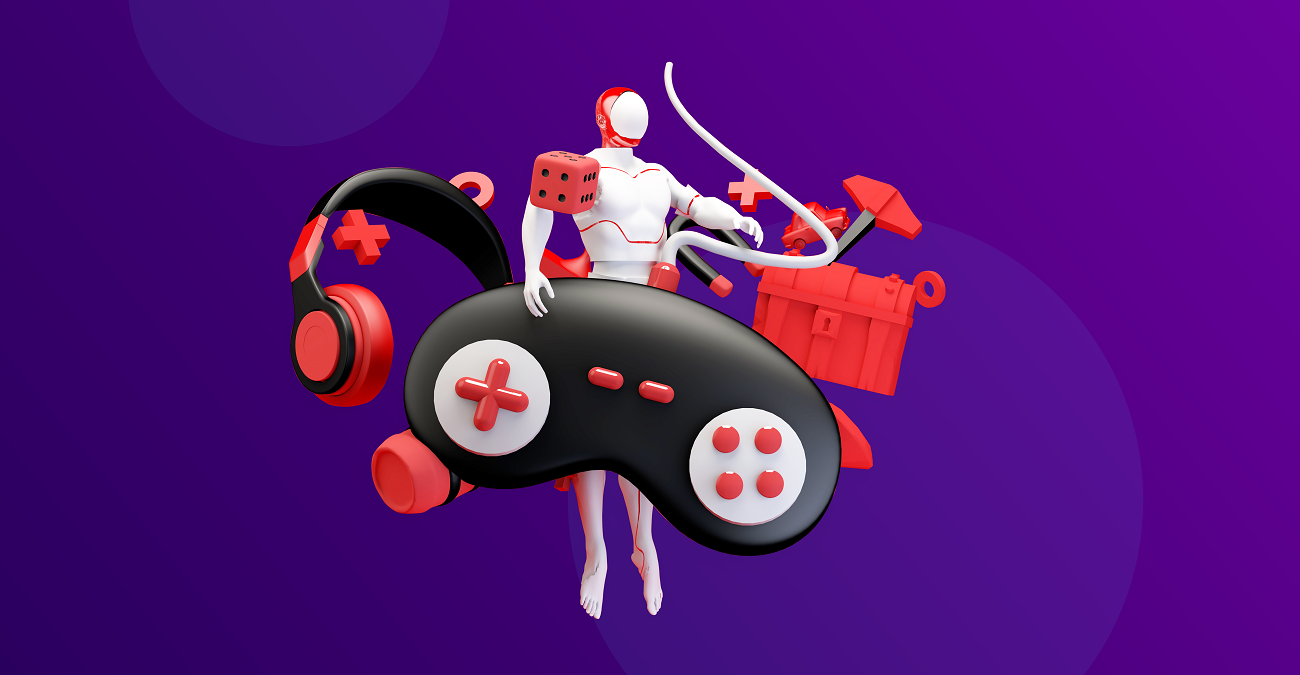Artificial Intelligence (AI) has been revolutionizing various industries, and the gaming sector is no exception. The integration of AI in gaming has led to significant advancements in User Interface (UI) and User Experience (UX) design, ultimately enhancing player experience. In this article, we’ll explore how AI is transforming game UI/UX design and its impact on players.
- Intelligent User Interface Design: AI-powered UI design adapts to individual players’ preferences, providing a more personalized experience. By analyzing user behavior and feedback, AI can optimize the layout, color schemes, and interactive elements of a game’s interface. This tailored approach ensures that players can easily navigate and interact with the game, leading to a more enjoyable experience.
- Contextual Help and Tutorials: AI can analyze a player’s actions and provide contextual help and tutorials when needed. This real-time assistance eliminates the need for traditional in-game tutorials, which can be intrusive and disrupt the flow of gameplay. By offering targeted guidance, AI enhances the learning curve and makes the game more accessible to a broader audience.
- Intelligent Difficulty Scaling: AI-driven difficulty scaling adjusts the game’s challenge based on a player’s skill level. By analyzing their performance, AI can dynamically adjust enemy AI, resource availability, and mission objectives to maintain an optimal level of challenge. This ensures that players of varying skill levels can enjoy the game without becoming frustrated or bored.
- Adaptive Storytelling and Narratives: AI can help create more immersive and adaptive storytelling in games by generating dynamic narratives based on player choices. By analyzing player behavior and preferences, AI can create branching storylines and character interactions that feel unique and tailored to each individual. This approach enhances the player’s emotional connection to the game and creates a more memorable experience.
- Predictive Gameplay and Recommendations: AI can analyze player behavior and preferences to predict their next moves and provide personalized recommendations for gameplay. This feature can help players discover new content, strategies, and challenges that align with their interests, ultimately enhancing their overall experience.
- Enhanced Multiplayer Experiences: AI can improve multiplayer experiences by matching players with compatible teammates and opponents based on skill level, communication style, and other factors. This ensures that players have a more enjoyable and balanced multiplayer experience, fostering a sense of community and engagement.
- Emotional AI and Player Feedback: Emotional AI can analyze players’ facial expressions, voice tone, and other biometric data to understand their emotional state during gameplay. By responding to these emotions, games can provide more personalized feedback, encouragement, or challenges, creating a more engaging and emotionally resonant experience for the player.
AI is revolutionizing the gaming industry by enhancing UI/UX design and player experience. Through intelligent interface design, contextual help, adaptive storytelling, predictive gameplay, and emotional AI, games can now offer a more personalized and engaging experience for players. As AI technology continues to evolve, we can expect even more innovative applications in the gaming sector

Leave a Reply